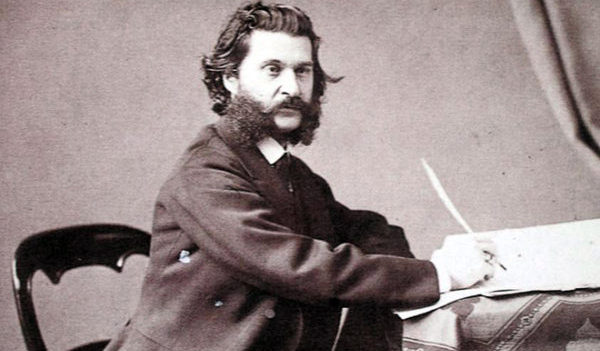The famous Austrian composer Johann Strauss, known as the “King of Waltzes,” hailed from a family renowned for their musical achievements. His incredible talent elevated him to the pinnacle of fame, and rightfully so—throughout his life, Strauss composed a vast number of remarkable works, many of which became recognized as classics.
To this day, his compositions are regularly performed in concert halls and conservatories around the world.
Facts from Johann Strauss’s Biography:
- Father’s Legacy: Johann Strauss’s father, also named Johann Strauss, was a famous composer and conductor in his own right.
- Musical Family: Johann Strauss had two brothers who also gained fame as musicians and composers, but Johann Jr. became even more renowned than they did.
- Jewish Heritage: The composer had Jewish roots through his great-grandfather, who converted to Catholicism.
- Admired by Peers: Strauss’s works were admired by a wide range of composers, from Offenbach and Wagner to Lehár and Tchaikovsky.
- Father’s Ambitions for Him: Johann Strauss Sr., a renowned musician, wanted his son to become a banker. However, young Strauss was determined to pursue music and secretly learned to play the violin with his mother’s help.
- Dual Education: While attending the Higher Commercial School as his father wished, Strauss also received a musical education, earning high praise from esteemed teachers.
- Mother’s Support: When Strauss was about to obtain his musician’s license, his mother divorced his father to prevent him from using his influence to obstruct Johann’s career.
- Family Conflict: Johann Strauss Sr. disinherited Johann and his brothers and officially married his mistress, with whom he already had seven children.
- Struggles with His Father: Johann Strauss formed his own orchestra, which primarily performed his compositions, but his father, envious of his success, did everything he could to hinder his son’s career. He spread malicious rumors, blocked his access to social events, and obstructed venues that played his son’s music.
- Support for the Revolution: During the 1848 revolutions in the Austrian Empire, Strauss supported the revolutionaries and composed several works in their favor. He was later arrested for this, but soon acquitted.
- Posthumous Tribute to His Father: Despite their strained relationship, after his father’s death, Johann Strauss published a complete collection of his father’s works at his own expense, composed the “Aeolian Harp” march in his honor, and performed Mozart’s “Requiem” at his father’s grave.
- First Marriage: His first wife had seven illegitimate children from different men, yet their marriage was happy and harmonious.
- International Fame: As Strauss’s fame grew, he toured extensively, performing in countries including France, Germany, and the United States.
- Brothers’ Collaboration: As his popularity soared, Strauss involved his brothers, Josef and Eduard, in his concert tours across Europe.
- Acknowledging His Brothers’ Talent: Remembering his father’s envy, Strauss would humbly say when asked about his brothers, “They are more talented than I am, I just got lucky.”
- Three Marriages: Strauss was married three times. His first wife passed away, his second marriage ended quickly, but his third was happy. However, because his third wife was Jewish and refused to convert, they could not have a Catholic wedding. To marry her, Strauss converted to Protestantism and obtained German citizenship.
- No Children: Despite three marriages, Johann Strauss had no children of his own.
- Concert in the U.S.: For a single trip to the United States, Strauss broke a contract with the Tsarskoye Selo Railways, which had agreed to hold the 11th summer season in Pavlovsk. In Boston, Strauss participated in a grand concert, conducting an orchestra of 1,000 musicians.
- Prolific Composer: Throughout his life, Strauss composed 496 works, including 168 waltzes, 117 polkas, 73 quadrilles, 43 marches, 31 mazurkas, 15 operettas, a comic opera, and a ballet.
- Celebration of His 70th Birthday: During his lifetime, Strauss became so famous that his 70th birthday in 1895 was celebrated with great fanfare across Europe.
- Nazi Erasure Attempt: During the Nazi regime in the 20th century, there was an attempt to conceal Strauss’s Jewish heritage through document falsification.
